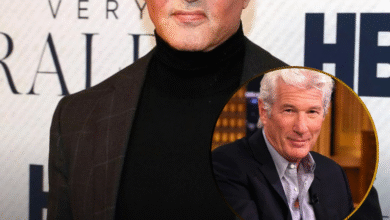Sylvester Stallone Reflects on Why Rocky Became a 1970s Cultural Phenomenon
OPINION: This article may contain commentary which reflects the author's opinion.
The 1970s in America were a turbulent era—marked by political scandals like Watergate, the aftermath of the Vietnam War, and economic hardships. Cinema during this decade often mirrored the nation’s cynicism and moral ambiguity, giving rise to gritty masterpieces like The Godfather and Taxi Driver. Yet amid this cultural landscape, a different kind of film emerged in 1976: Rocky, a modestly budgeted sports drama about an underdog boxer from Philadelphia. Written and starred in by then-unknown Sylvester Stallone, Rocky struck a chord with audiences hungry for inspiration and heart.
A Changing Cinematic Appetite
The release of Steven Spielberg’s Jaws in 1975 heralded a new era of blockbuster filmmaking, where audiences sought thrilling and entertaining experiences. Following this trend, films like Star Wars, Superman: The Movie, and Rocky captured the public imagination—but Rocky distinguished itself by offering a deeply personal and relatable story amid the spectacle.
Despite its smaller scale, Rocky became the highest-grossing film of 1976 and won three Academy Awards, including Best Picture—a remarkable feat for a sports film led by a first-time screenwriter and actor.
Stallone’s Insight on Rocky’s Success
In a 2012 interview with Roger Ebert, Stallone explained the film’s enduring appeal. He attributed it to audiences’ emotional connection with Rocky Balboa, a character who embodies vulnerability, determination, and love.
“The people like it who let their emotions be their guide,” Stallone said. “Of course, if you go in intellectually, you hate it. But if you let yourself go with it, something happens about 40 minutes into the movie. You say to yourself, hey, this isn’t going to be the colossal downer of all time. You find out Rocky’s not just a fighter on the way down, he’s a pliable, vulnerable person. And the movie isn’t just about fighting—it’s about heart and love. And then you throw yourself into it emotionally. Maybe that’s why I made it about boxing. Everybody knows what it’s like to punch, and be punched, and everybody knows what it’s like to fall in love.”
From Grit to Camp: The Rocky Legacy
Stallone went on to write and direct several sequels (Rocky II, III, IV, and Balboa) and wrote Rocky V, which was directed by John G. Avildsen. While the first two sequels continued to explore Rocky’s raw human emotions, Rocky III ushered in a more campy, larger-than-life tone, featuring iconic villains like Clubber Lang (Mr. T) and Ivan Drago (Dolph Lundgren). Despite this shift, the franchise’s core earnestness and emotional depth remained intact, particularly through Rocky’s relationship with his wife Adrian, played by Talia Shire.
The tenderness of Rocky’s character endures in the Creed spin-offs, where he embraces a mentor role for Adonis Creed (Michael B. Jordan), the son of his late friend and rival Apollo Creed (Carl Weathers). This continuation of Rocky’s story preserves the heart and humanity that first made the character resonate with audiences.
Rocky was born from Stallone’s own struggles and aspirations, capturing a nation’s desire for hope and resilience in uncertain times. Its success is a testament to the power of heartfelt storytelling and the universal appeal of an underdog fighting for something greater than himself.



